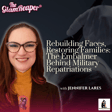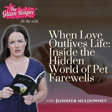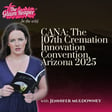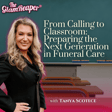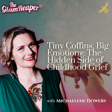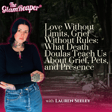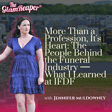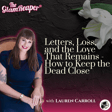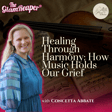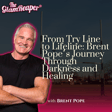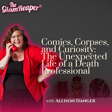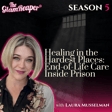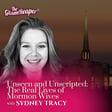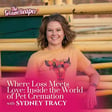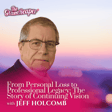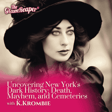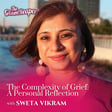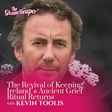
Six Feet Under Pressure: A Legacy's Burden in the Funeral Industry Part 2
In part 2 of this episode of The Glam Reaper Podcast, Jennifer Muldowney continues her conversation with Caleb Wilde and delves into how the funeral industry is evolving due to generational shifts and technological advancements.
Caleb talks about the challenges funeral directors face with rapid changes and resistance to new ideas. He highlights the different communication styles across generations and the pressure to conform to traditional practices in family-owned businesses.
Jennifer acknowledges the industry's shift towards more personalized and diverse practices, recognizing that the funeral industry is not static but continually evolving to meet the needs of modern society.
Tune in to this enlightening episode as Jennifer and Caleb delve into the evolving challenges and triumphs within the funeral industry!
Key Topics:
-Struggles of funeral directors with societal changes
-Generational differences in adapting to changes in Funeral industry
-Challenges between family-owned and corporate-run funeral homes
-Importance of trust, transparency, and understanding individual values in supporting grieving families
-Mental health challenges faced by funeral directors
Quotes From The Episode:
They would rather feel the comfort of doing what they already know, than the discomfort of being challenged to think about something new.
- Caleb Wilde
All of these moments are sewn together to make these moments happen.
- Jennifer Muldowney
Timestamp:
[00:00] Podcast Intro
[00:30] Caleb highlights how funeral directors are struggling to adapt to rapid societal changes.
[01:47] Jennifer reflects on generational differences in adapting to change.
[04:28] Caleb emphasizes the differences between family-owned and corporate-run funeral homes.
[10:29] Jennifer delves into the importance of trust, transparency, and understanding individual values in the funeral industry.
[13:58] Caleb talks about his personal journey and experience of writing books.
[17:23] Caleb discussed the mental health challenges faced by funeral directors, including burnout, depression, and anxiety.
[24:54] Jennifer acknowledges that the funeral industry is evolving towards more personalized and diverse practices.
[27:49] Outro
Connect with Caleb Wilde:
Facebook - /ConfessionsofaFuneralDirector
Website - book.calebwilde.com
Instagram - @confessions_of_a_funeral_dir
Twitter - @CalebWilde
Connect with Jennifer/The Glam Reaper on socials at:
Facebook Page - Memorials
https://www.facebook.com/MuldowneyMemorials/
Instagram - @muldowneymemorials
Email us - glamreaperpodcast@gmail.com
Listen to The Glam Reaper Podcast on Apple Podcasts:
https://podcasts.apple.com/us/podcast/the-glam-reaper-podcast/id1572382989?i=1000525524145
You Tube - https://www.youtube.com/channel/UCWe3sNoPny6UsMGYoYDeXfw
